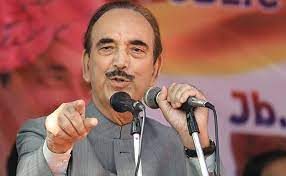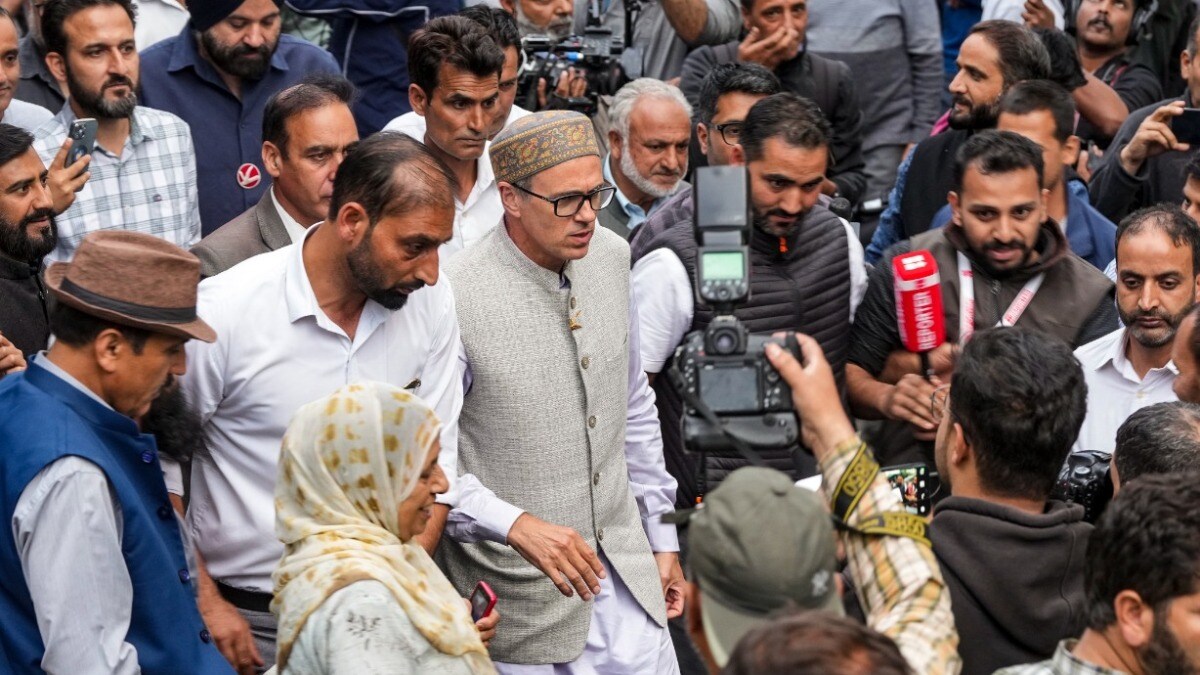Democracy Diluted? Azad Says Opposition Silence Strengthens Government’s Grip on Legislation
By: Javid Amin | 31 July 2025
A Critical Wake-Up Call: Azad’s Message to Opposition Leaders
Former Parliamentary Affairs Minister Ghulam Nabi Azad has sharply criticized opposition parties in India, warning that their frequent walkouts and abstentions inadvertently aid the government in passing legislation with little scrutiny.
As Azad stated:
“The government becomes happy when the opposition walks out because it can then pass laws easily.”
He underscored that “walking out is not opposition; it’s assistance to the government.”
Parliamentary Duty vs. Disruption
Azad asserted that elected representatives have a responsibility to engage constructively in Parliament, saying:
“If you do not allow the House to function, then why get elected? Entering the House means raising national, domestic, and people’s issues before the government.”
He emphasized that disruption—even symbolic protest—undermines democratic process and reduces scrutiny of government business.
Lessons From Indira Gandhi: Debate, Not Chaos
Drawing on his experience, Azad recalled guidance from former Prime Minister Indira Gandhi during his early tenure:
“She told me: ‘You have come to the Parliament to speak, not create a ruckus.’ One cannot become a leader by stifling an opposition leader from speaking.”
His point: parliamentary decorum and civil discourse are foundational to meaningful leadership.
Operation Sindoor and Pahalgam: Security Matters—and Closure
On the tragic April 22 Pahalgam terror attack, Azad noted that the Lieutenant Governor Manoj Sinha had accepted responsibility, implying the issue should now be considered closed:
“LG has owned the responsibility. With that, the matter should be closed.”
Regarding subsequent security operations, such as Operation Mahadev, he voiced support for counterterrorism efforts—so long as human rights standards are upheld:
“Security forces had full freedom… but operations must not involve human rights violations or fake encounters.”
DPAP’s Crossroads: Integrity and Internal Challenges
Azad also addressed internal turmoil within his Democratic Progressive Azad Party (DPAP), responding to leaders hopping parties:
“When someone becomes a minister, they want to remain one. They hop from party to party… a chronic disease.”
Despite political volatility, he remains committed to non-violent politics and speaking truth consistently, even as he weighs his party’s future:
“My politics is based on truth and non-violence…I cannot speak differently in different places.”
Summary Table: Key Themes from Azad’s Remarks
| Theme | Azad’s Perspective |
|---|---|
| Opposition Conduct | Walkouts help the government fast-track bills. Constructive participation is crucial. |
| Parliamentary Duty | MPs should raise constituents’ issues within the House rather than disrupt it. |
| Leadership Ethos | True leadership relies on reasoned debate—not obstruction, as advised by Indira Gandhi. |
| Security Accountability | LG’s acceptance of responsibility should close the Pahalgam chapter; support for operations with rights safeguards. |
| DPAP Values | Politics grounded in integrity, truth, non-violence—even amid shifting allegiances. |
Broader Implications: Strengthening Parliamentary Democracy
01. Parliament as a Forum, Not Theater
Azad’s remarks challenge the trend of symbolic walkouts and adjournments, arguing instead for robust legislative debate, clause-by-clause scrutiny, and constructive dissent.
02. Governing Without Opposition Checks
Unchecked government majority may lead to diminished deliberation, potentially sidelining minority voices and weakening policy quality.
03. Restoring Political Civility
Indira Gandhi’s advice—favoring speech over commotion—resonates today as a call to revive parliamentary etiquette and discipline.
04. Rethinking Party Strategies
For opposition parties, the lesson is clear: legitimacy is built through engagement, not absence. For the DPAP, Azad’s introspection signals his intent to anchor politics in moral clarity.
Final Word: A Timely Challenge to Political Culture
With high-stakes issues like Operation Sindoor, electoral reforms, and security responses dominating Parliament, Azad’s intervention is timely. He offers a compelling critique: protest should not become a tool that weakens democracy.
His message is emphatic:
Representation demands action, not abdication. Silence aids, engagement matters, and democracy thrives in discourse—not disruption.



